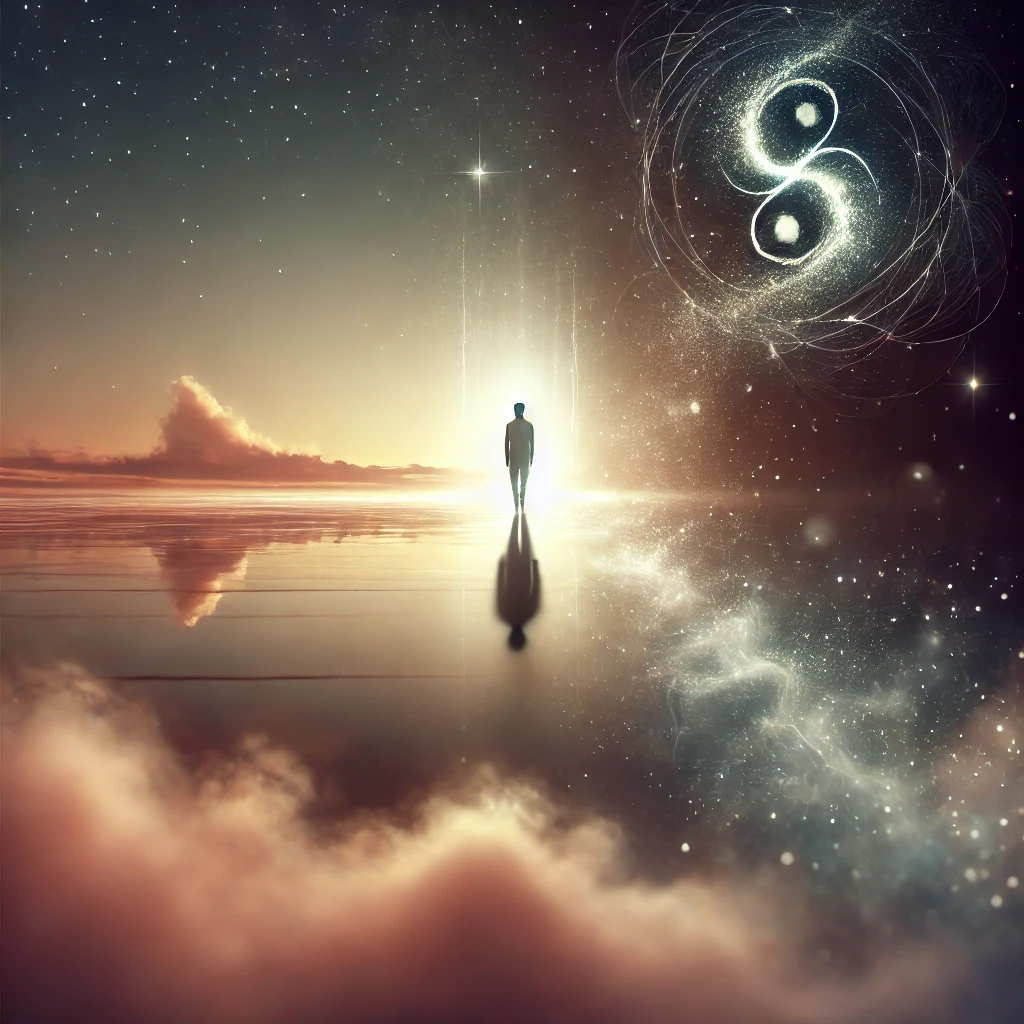Hi there, dreamers and deep thinkers.
This is one of the most profound questions we ask ourselves when faced with the mystery of death: What happens to consciousness when the body is no longer here? Is it extinguished, like a flame in the wind, or does it persist, flowing into something greater and eternal? For me, this question became deeply personal after losing my mother. In her absence, I’ve found myself sensing her presence in ways that are hard to explain but impossible to deny.
Let’s explore the possibilities together, weaving science, philosophy, and spirituality into a tapestry that might bring comfort and deeper understanding.
The Scientific Perspective: Consciousness and the Brain
Modern neuroscience often tells us that consciousness arises from the brain’s intricate neural networks. When these networks shut down—like a power outage—so does our experience of being conscious. This perspective suggests that consciousness is dependent on physical processes, tethered to the body.
But life isn’t always so straightforward, is it? What about the countless stories of near-death experiences (NDEs)? People across cultures and ages report sensations of leaving their bodies, meeting loved ones, and moving through realms of light after clinical death. If consciousness is purely physical, how do we explain these vivid, life-altering experiences?
Skeptics point to oxygen deprivation or other neurological processes as explanations. But pioneers like Dr. Raymond Moody have argued that NDEs might indicate something much more profound: that consciousness could exist independently of the body, as if it were a traveler leaving its vessel behind.
Philosophical and Quantum Perspectives: The Soul and the Stars
The philosophical lens opens even more doors. Dualism, introduced by René Descartes, suggests that the mind and body are separate entities. If this is true, our consciousness—or soul—could outlive our physical forms. It’s a perspective that resonates deeply with those of us who have felt the presence of a loved one long after they’ve passed.
In the world of quantum physics, we see echoes of this idea. Researchers like Sir Roger Penrose and Stuart Hameroff propose that consciousness may emerge from quantum processes in the brain’s microtubules. Quantum phenomena are not limited by space and time in the ways we understand; they’re fluid, interconnected, and eternal. If consciousness is part of this quantum realm, it may transcend the boundaries of life and death.
Eastern Wisdom: The Ocean of Consciousness
Eastern philosophies like Hinduism and Buddhism teach us that consciousness is part of a vast, interconnected reality. It is like a drop of water in an infinite ocean—distinct for a moment but always part of the whole. In this view, death is not an ending but a merging, a return to the source from which we came.
This perspective has brought me immense comfort. When I think of my mother, I imagine her consciousness not as something lost, but as something that continues—woven into the air I breathe, the stars I see, and even the thoughts I hold.
Interconnectedness: Nothing Truly Dies
Here’s where the idea of interconnectedness shines. If everything is one—if we’re all threads in a vast, cosmic tapestry—then death is not an end but a transformation. When we lose someone, we don’t lose the love, the essence, or the connection. These remain, woven into the very fabric of existence.
Sometimes, I feel my mother’s presence in the small moments: the scent of her favorite flowers, a song she loved, or the warmth of a memory. These aren’t just wishful imaginings. I believe they’re echoes of the eternal, reminders that the ones we love never truly leave us.
Final Thoughts: A Loving Mystery
The question of what happens to consciousness after death might never have a definitive answer, and maybe that’s okay. The beauty lies in the mystery, in the ways it invites us to connect—to our loved ones, to ourselves, and to the universe as a whole.
Whatever perspective resonates with you—scientific, philosophical, or spiritual—remember this: the bonds of love and connection are unbreakable. They are the threads that tie us to one another, even across the veil of death.
So, as you ponder this mystery, hold onto the love you’ve shared, and let it remind you of the eternal nature of existence. Stay curious, my friends, and keep exploring.
With love,
April
Cognitive Psycho
—
For more on healing, grief, and finding peace after loss, explore the “Hollow Spaces: Life After Loss” series on Cognitive Psycho.





One response to “What Happens to the Consciousness After Death?”
[…] Rene Descartes argued for dualism, where the mind (consciousness) and body are separate. If true, consciousness could continue after physical death. Meanwhile, David Hume suggested that consciousness is a product of sensory experiences and ceases when these end. The question becomes a choice between seeing consciousness as eternal or as a brief flicker in time… […]